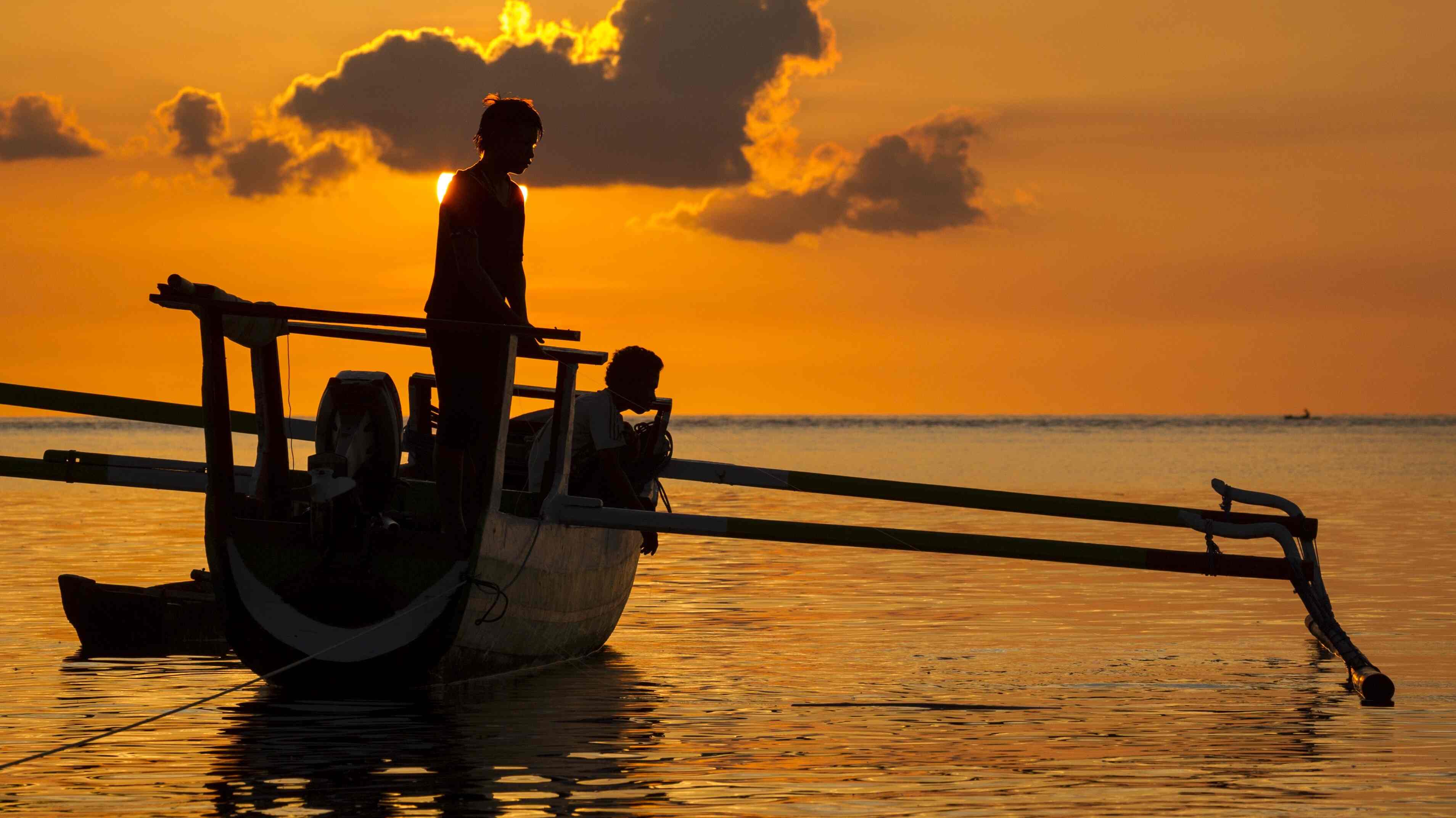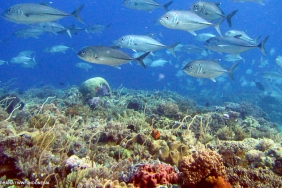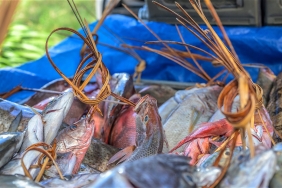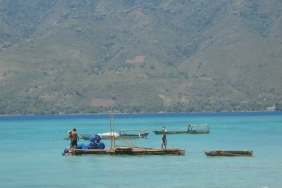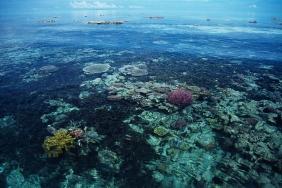WWF APPRECIATES MINISTER'S MOVE TO PROMOTE SUSTAINABLE FISHERIES
Jakarta - WWF-Indonesia appreciates and supports the steps taken by Minister of Marine Affairs and Fisheries Susi Pudjiastuti in her first week in office. As an environmental conservation organization with a mission to create a harmonious relationship between humans and nature, WWF-Indonesia believes that the policies taken by Minister Susi Pudjiastuti to date are in line with the principles of sustainable fisheries. "Sustainable fisheries principles prioritize environmentally friendly fisheries practices, pay attention to the sustainability of fish stocks, and implement ecosystem-based fisheries management," said Arnold Sitompul, WWF-Indonesia's Director of Conservation.
Eradication of illegal fishing, moratorium on new licenses for fishing vessels, prohibition of mangrove cutting and use of chemicals for aquaculture ponds, and prohibition of fishing and trading of spawning fish are elements related to sustainable fisheries. Likewise, the regulation of the exploitation of fish resources to preserve fish stocks or what is known as the harvest control rule and the plan to eliminate fuel subsidies that are transferred to the welfare of fishermen.
However, in practice, it is still often found that fishermen or fisheries entrepreneurs do not follow the rules of sustainable fisheries, such as fishing using explosives, drugs, fishing for protected species and not recording and reporting catches. These practices are generally categorized as Illegal Unreported and Unregulated Fishing (IUU Fishing) activities.
In a 2014 report, FAO stated that a rough estimate of the amount of fish obtained from IUU Fishing at the global level could reach up to 11-26 million tons annually with an estimated value of US$10-23 billion. In Indonesia, IUU fishing activities contribute significantly to the current occurrence of overfishing. An analysis of Indonesian and FAO capture fisheries statistics shows that Indonesia is estimated to be overfished by 430 thousand tons per year, a figure based on an estimate made by the FAO that 30% of the total catch is estimated to come from IUU fishing activities.
Referring to Minister Susi Pudjiastuti's plan to increase the value of the catch to 5-6 trillion rupiah, WWF-Indonesia is of the view that the eradication of IUU Fishing has the potential to significantly increase Indonesia's fisheries production revenue, but not enough to achieve the target. "Indonesia needs to improve the quality of fish catches, not increase the number of catches, because currently fish catches are already excessive," Arnold added. According to him, quality improvement can be done, among others, through schemes to improve post-harvest processing and ecolabel certification that supports the sustainability of fish resources. Through efforts to improve the quality of capture fisheries, the number of vessels operating and costs incurred can be reduced, resulting in greater business profits.
The next step to encourage sustainable fisheries production is to improve the accuracy and transparency of fish catch records. "Accurate and transparent records will assist the government in recording profits from the fisheries sector and prevent fraud, including identifying the tendency of businesses to manipulate reports to avoid taxes," said Abdullah Habibi, WWF Indonesia's Capture and Aquaculture Fisheries Improvement Manager.
WWF-Indonesia supports Minister Susi Pudjiastuti's idea to include business sense in the national fisheries policy, especially to ensure the sustainability of the resources. "Sustainable fisheries practices are the key to realizing a sustainable fisheries business as well.
WWF-Indonesia is ready to support and oversee a more effective sustainable fisheries policy in the future, as stated in the Memorandum of Understanding between KKP and WWF which was renewed in October 2014.
For more information, please contact:
Abdullah Habibi, Capture and Aquaculture Fisheries Improvement Manager, WWF-Indonesia
Email: AHabibi@wwf.or.id
Margareth Meutia, Seafood Savers Coordinator, WWF-Indonesia
Email: MMeutia@wwf.or.id

